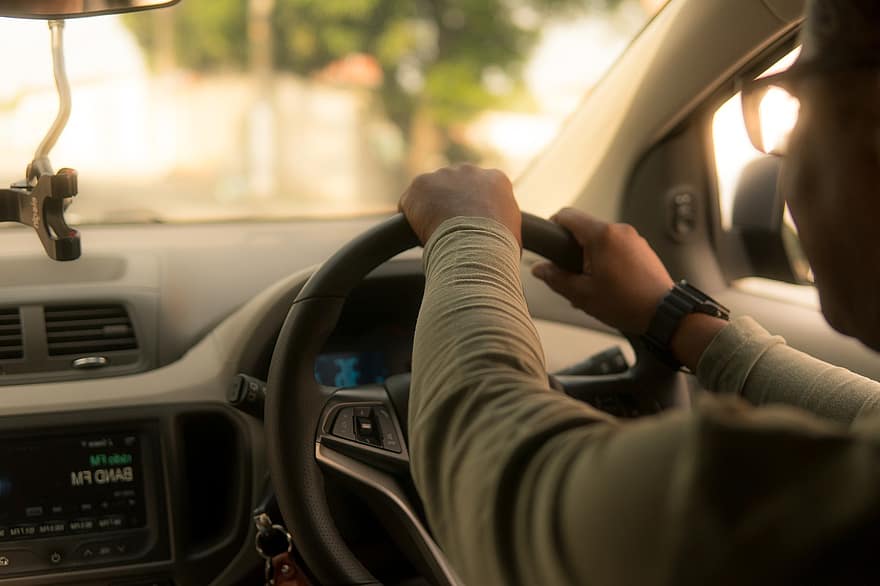An attorney for former Uber driver Thomas Liu, who was fired in 2015, says her client frequently received unfriendly comments from drivers.
A former Uber driver in California has sued the rideshare company, claiming its internal rating system for drivers facilitates racial discrimination.
According to National Public Radio, the San Diego-based plaintiff alleged that Uber’s “star” rating system—with which passengers evaluate drivers’ performance by giving them anywhere between one and five stars—disproportionately leads to the termination of workers of color or those with accents.
Shannon Liss-Riordan, an attorney who filed the lawsuit on behalf of former rideshare provider Thomas Liu, claimed that Uber has long known that its system effects bias.
“Uber has long known that relying on a system that depends on passenger evaluation of drivers is discriminatory,” Liss-Riordan wrote in the complaint, filed earlier this week in a San Francisco federal court.
A prospective class action, the lawsuit is intended to eventually represent all drivers who have been terminated due to consistently low ratings. It further asks the courts to issue an order prohibiting Uber from continuing to use its star-based rating system.
“Uber’s use of this system to determine driver terminations constitutes race discrimination, as it is widely recognized that customer evaluations of workers are frequently racially biased,” the lawsuit states. “Indeed, Uber itself has recognized the racial bias of its own customers.”
NPR notes that Liu, in the lawsuit, is described as an “Asian” from Hawaii who speaks with a slight accent. Liu says Uber forced him off the platform in October 2015 after his driver rating fell below 4.6.
Liu says his evaluations were influenced more by race than his own performance.

“He noticed riders [canceling] ride requests after he had already accepted the ride and the rider was able to view his picture,” the lawsuit says. “He also experienced riders asking where he was from in an unfriendly way.”
Fortune.com notes that Liu had earlier taken his case to the federal Equal Employment Opportunity Commission, or EEOC.
Although the EEOC was unable to reach a determination as to whether Liu’s dismissal constituted racial discrimination, the commission did authorize him to pursue his case in court.
However, Uber has taken a firm stance against Liu and Liss-Riordan’s claims. In an e-mailed statement to Fortune.com, Uber spokesperson Matt Kallman both called the lawsuit “flimsy” and said that rideshare services have “greatly reduced bias for both drivers and riders, who now have fairer, more equitable access to work and transportation than ever before.”
Several drivers and Uber affiliates interviewed by the right-center California Globe backed Uber, saying the company does not terminate its workers for simply having lower-than-average ratings.
“They don’t fire people based solely on ratings,” Uber driver Alejandro Soto told the Globe. “There needs to be an established pattern. You know: unsafe driving, having an unclean interior, yelling at passengers, smoking in the car. There needs to be several similar complaints. Uber just simply won’t fire someone for going below a 4.6. There needs to be a reason. A pattern saying why.
“Honestly, that’s probably why the EEOC refused to pursue this,” Soto said. “There’s like something else that we aren’t seeing.”
Liss-Riordan, though, seemed to pre-empt Uber’s rhetorical defense in her filing. Along with claiming that Uber’s practices “cause particular harm to people of color,” she also referenced Uber’s litany of workers’ rights controversies.
“Uber’s pattern of exploiting its drivers in the name of the dollar is well documented,” she wrote, “and this lawsuit seeks to hold the company accountable for the institutional racism it has embraced and perpetuated.”
Sources
Class Action Lawsuit Filed Against Uber in San Francisco Over Discrimination Claims
Uber Fires Drivers Based On ‘Racially Biased’ Star Rating System, Lawsuit Claims
Uber sued by non-white drivers alleging race-biased ratings lead to firings


Join the conversation!